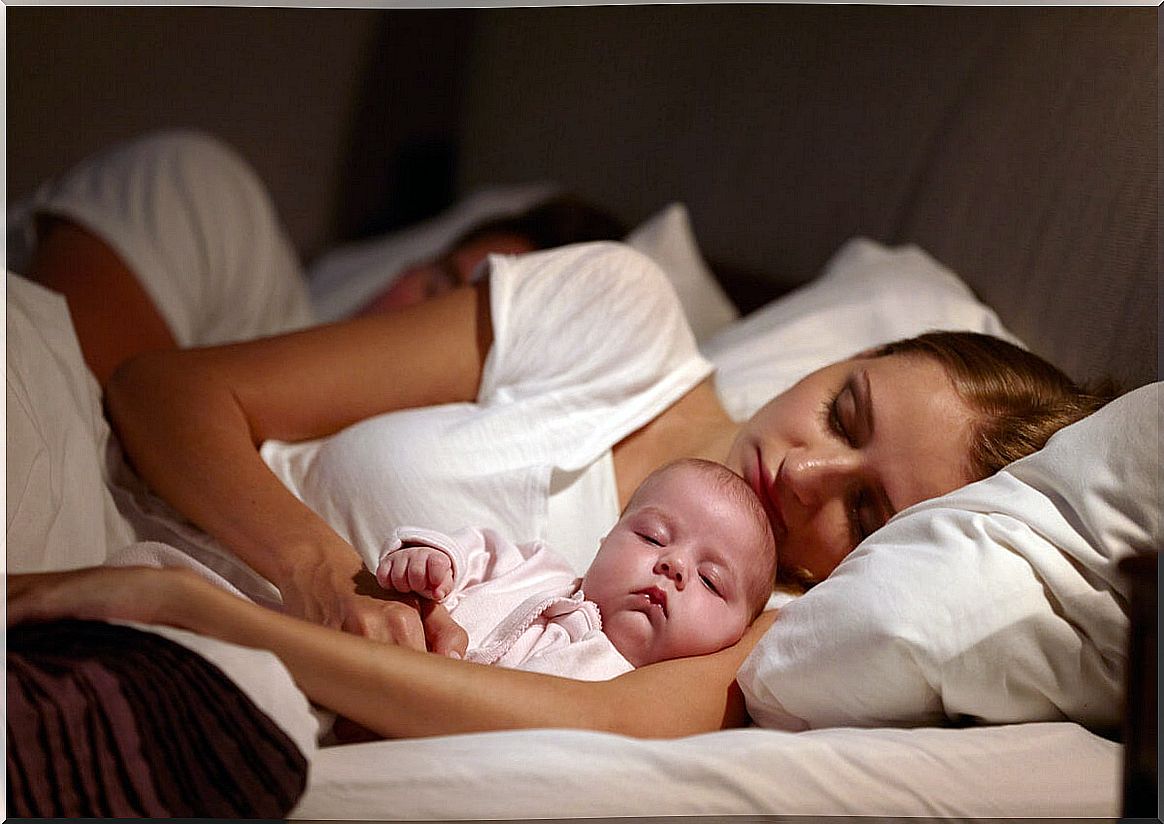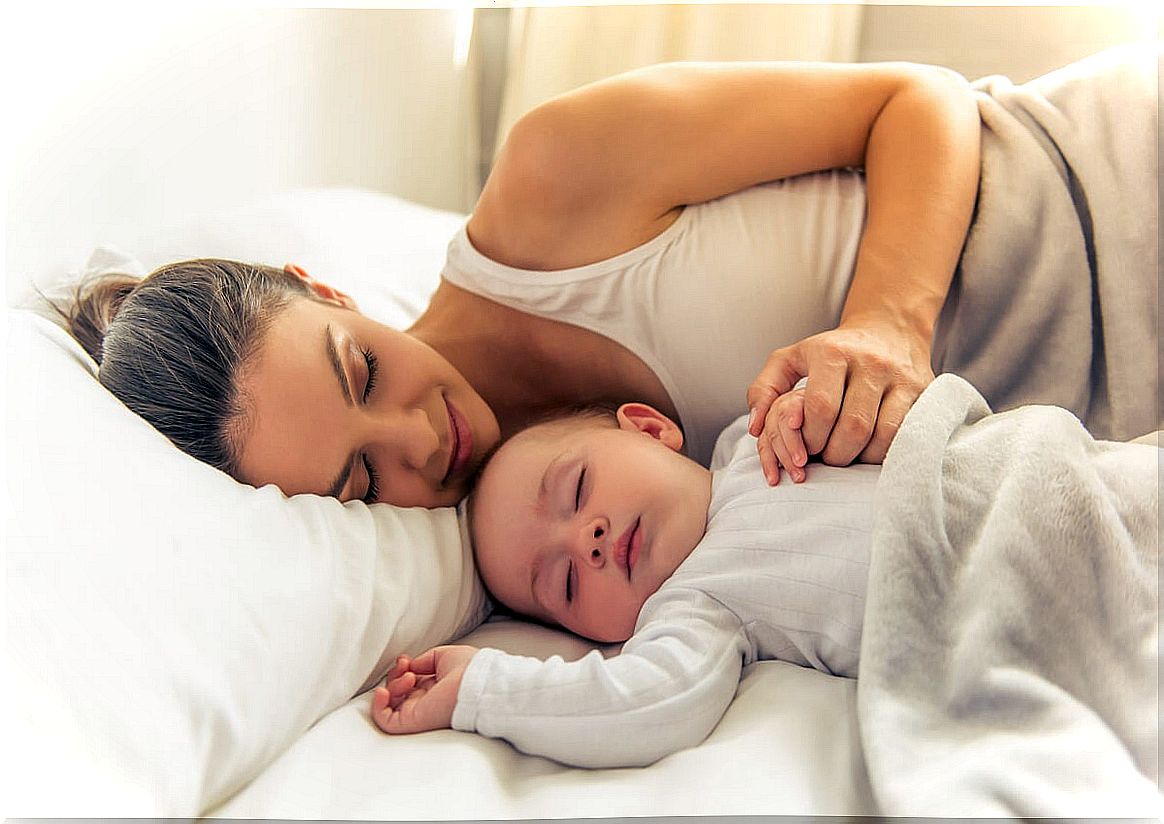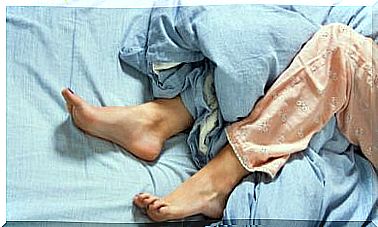Psychological Benefits Of Co-sleeping

Co-sleeping is a practice that consists of sleeping with your baby (or having your baby sleep with you) in the same bed, in the same bed. Like almost everything in life, this practice has supporters and detractors. But what really are the benefits of co-sleeping? In this article we want to review the psychological benefits that this practice can bring to both the baby and the parents.
With certain precautions, co-sleeping can be done in the parents’ bed. Other options are to get a special co-sleeping crib (they are cribs that are attached to the edge of the parents’ bed), or a normal crib can be used with one of the sides removed. It is an ancient practice that has been practiced in various cultures for several centuries and to which more and more families are joining.

Psychological benefits of colech0
The decision on how to raise children is unique to the parents and it is they who must weigh what are the best parenting practices taking into account the circumstances and way of life. For this, it is important to know the different options, their advantages and their disadvantages.
The benefits of co-sleeping are many, both for the physical development of the baby, as well as for their cognitive and emotional development : it allows more continuous sleep, facilitates nocturnal milk feeds, provides a sense of security … Of course, this practice is also beneficial for parents, as it allows them to sleep more peacefully and also offers them time to be closer to their baby.
We are going to see in detail those aspects that can be improved or benefited by sleeping together.
1. Regulates the body temperature and breathing of babies
Co-sleeping helps to synchronize the body temperature of both (mother / father and baby), especially when the contact is skin-to-skin. It has been observed that when the baby is in contact with the mother’s skin – suckling, for example – the mother’s body temperature changes depending on the baby’s temperature.
If the baby is cold, the temperature of the mother’s chest increases two degrees to warm her. If the baby is warm, the mother’s breast drops one degree. This is called thermal synchrony and demonstrates the importance of mother-baby contact.
Listening to the parents’ breathing helps to regulate the baby’s breathing, which favors their relaxation and makes their sleep pattern more regular and they rest better (and, consequently, also the parents).
2. Helps prolong breastfeeding
Children who sleep with their parents eat more, co-sleeping helps to prolong breastfeeding. The closeness between mother and baby favors an increase in the mother’s prolactin levels, positively conditioning the optimal levels of nocturnal prolactin.
In addition, this allows to increase the milk intakes and allows a greater frequency of access to the milk, without the need to get out of bed and without schedules.
3. Co-sleeping also improves the physiological and psychological functioning of the baby
- Provides emotional security and affection. Babies have no notion of our existence if we are not present (because they lack the notion of object permanence), so the presence of parents can help them feel safe.
- It allows to offer a quick response to crying and the needs of babies.
- Reduces levels of cortisol, the stress hormone. Lowering cortisol levels helps prevent childhood behavior problems associated with high cortisol levels.
- It makes it easier for the baby to reach a deeper phase of sleep, during which the infant growth hormone is secreted and during which the elimination of toxins at the brain level occurs.
According to scientists at the London Center for Children’s Mental Health, co-sleeping makes children healthier and more balanced adults. Using magnetic resonance imaging, it was found that in children who slept alone, the same brain areas that are activated by physical pain were activated during the night. In other words, sleeping apart from your parents can be “painful.”
On the other hand, it seems that children who sleep alone have a lower academic performance, when compared to children of the same age who sleep with their parents. In addition, children who sleep with their parents tend to be more self-confident and their cognitive development is better.

Conditions for a safe co-sleeping
Co-sleeping is not risk-free, so it is important to take into account certain conditions that need to be met. Regarding bed conditions and environmental conditions :
- The mattress should be firm and wide. Avoid soft mattresses or weak structures, such as sofas or armchairs.
- It should be avoided that there are more people sleeping in the bed, in addition to the parents and the baby, for example, avoid having other siblings.
- The bedspread, blanket or comforter should not be too heavy.
- The room temperature does not have to be very high.
- The baby should not be too warm
- Regarding the position of the baby, it should be on his back, since this position reduces the risk of sudden infant death syndrome.
Conditions of the parents and the baby
The Breastfeeding Committee specifies that the baby must be older than 3 months and should not be practiced with premature or low-weight babies. On the other hand, co-sleeping should not be practiced when parents are excessively tired.
When, for medical treatment, parents who must take drugs that alter their ability to react or have sedative effects, it is not safe to sleep with the baby either. Likewise, in order to “collect” parents should not consume alcohol, tobacco or other drugs.
Before putting co-sleeping into practice, it is important to also learn about the risks of doing it and what conditions make it not a recommended practice. Therefore, if you are interested in practicing co-sleeping for your children, we invite you to consult with your pediatrician.









